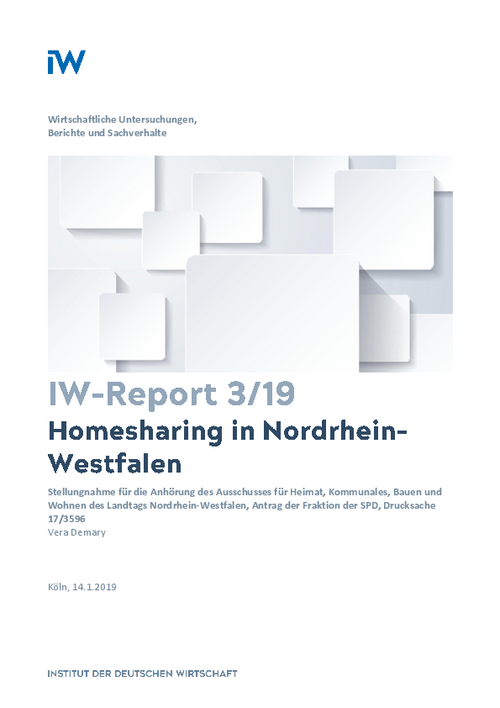A professional, continuous short term letting of accommodation via home sharing platforms like Airbnb can lead to a reduction of housing space and therefore intensify housing shortages.

Homesharing in the German federal state of North Rhine - Westphalia
Iw-Report

A professional, continuous short term letting of accommodation via home sharing platforms like Airbnb can lead to a reduction of housing space and therefore intensify housing shortages.
Regulation like the ban of an exclusive use of apartments or houses for short - term accommodation (so - called ban on misuse or Zweckentfremdungsverbot) are supposed to prevent or to mitigate such developments. In the German federal state of North Rhine-Westphalia however, no empirical evidence for such reductions of housing space due to home sharing via Airbnb can be found.

Vera Demary: Homesharing in Nordrhein-Westfalen – Stellungnahme zur Anhörung
Iw-Report

More on the topic

Options for affordable new construction
Due to the mix of higher interest rates and increased construction costs, new residential construction in Germany is in a very difficult situation.
IW
Housing for the Elderly
Many older people share the desire to be able to live independently in the familiar surroundings of their own home for as long as possible. Accidents and illness, however, can soon put an end to such autonomy.
IW